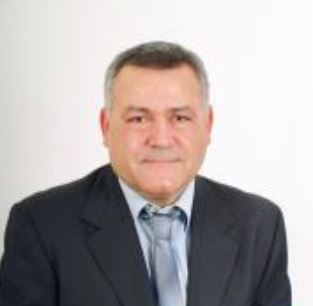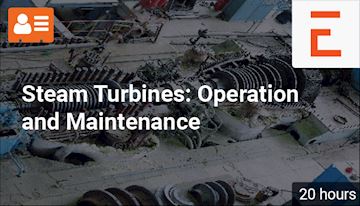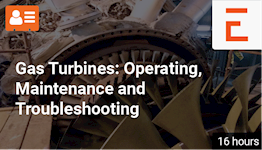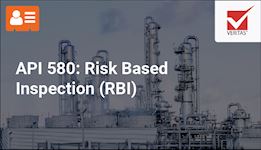Steam Turbines: Operation and Maintenance
Steam Turbines: Operation and Maintenance
-
Unlimited Team-wide Access
-
Advance Technical Competences
-
Courses by Industry Authorities
Additional
Quotation for your TeamAbout the course
This instructor led course explains steam turbines from an operation and maintenance perspective. First the working of a steam turbine is explained and the components, ranging from the casing and the HP turbine, to the seals and the coupling are detailed. The auxiliary oil systems, the sealing, the supervisory control systems and the steam regulation valves are then explained.
The participants will be shown the control options for a Steam Turbine. What is the function of the Governor? What is the architecture of the trip system? What automatic protections are built into a steam turbine? Common maintenance procedures, such as opening the casing and removing the rotor, and adjustment or removal of the journal bearing are then explained The training course concludes with performance monitoring and troubleshooting. Participants are shown how vibration analysis can be used to identify problems in the steam turbine such as rotor rub or an unbalance, and how the performance of the steam turbine can be monitored using which measurement points.
The course is formed of 11 modules split across 20 training hours. All modules will be live sessions with the instructor. This training course is available as a company in-house training only; there is a choice between an online training or an onsite training. All training materials will be available through your EngineeringTrainer account.
Meet your instructor
Instructor
Dimitris Antoniadis
Power Plant Maintenance Manager

Learning Outcomes
After this course, you...• have a comprehensive knowledge of the main components in a steam turbine, including lubricating oil systems, steam and water seal systems, and hydraulic power units,
• are able to identify the locations of the turbine supervisory instrumentation and describe their functions,
• understand the different control concepts for a steam turbine,
• know how to perform thorough examinations of the cause and effects of thermal stress on normal turbine operations,
• are able to disassemble and assemble major turbine components safely, and can play an active role in improving inspection/repair techniques,
• are able to identify irregular operating conditions based on the vibration measurements for different components,
• understand how to detect abnormal conditions, and can propose potential solutions and loss prevention methods.
Who should attend this course
• Engineers and technicians who are involved in the operation and maintenance of Steam Turbines at power plants, petrochemical plants, production oil/gas fields and process plants.• Those who would like to gain an in• depth knowledge of steam turbine design, operation and maintenance
Prerequisites
Engineering B.Sc diploma or equivalent, or 5 years practical experience with Steam TurbinesProgram & Details
-
Introduction to Steam Turbines
Live
1. Types of Turbines
2. Thermodynamics of a Steam Turbine
3. Reaction vs Impulse Turbine
4. Velocity and Pressure Compounding
5. Classification of Steam Turbines
6. Products and Markets -
Components of a Steam Turbine
Live
1. Steam Turbine Casing
2. Supports and Foundations
3. Piping Loads on Nozzles
4. High and Intermediate Pressure Turbines (HP and IP)
5. Low Pressure (LP) Turbine
6. HP Pedestal
7. Turbine Blades and Guide Vanes
8. Thrust and Journal Bearings
9. Sealing
10. Condenser and Steam Injector
11. Coupling
12. Applications and Examples -
Auxiliary Systems
Live
1. Oil Film Dynamics
2. Turbine Oil Specification
3. Main Oil Pump
4. Lube Oil Supply System
5. Jacking Oil and Barring Gear System
6. Generator Seal Oil System
7. Generator Stator Water Cooling System
8. Gland Seal System -
Supervision Systems
Live
1. Control Modes
2. Governor Types
3. Turbine Supervisory Instrumentation (TSI)
4. Steam Turbine Speed Control
5. Digital Electro-Hydraulic Control System (D-EHC)
6. Load Control
7. Partial and Full Arc Admission -
Thermal Monitoring
Live
1. Operating Transients
2. Shell Expansion
3. Differential Expansion
4. Casing-Rotor Temperatures -
Steam Turbine Control
Live
1. Steam Turbine Control Concepts
2. Governors and Droop
3. Converters and Servomotors
4. Governing System
5. Trip Devices
6. Trip System Architecture
7. Protections from Lubrication Oil System
8. Protections from TSI
9. Protections from Bearing Metal Temperature
10. Protections from Seal Oil System
11. Protections from LPT and HPT
12. Protections from Condenser and Boiler Trip
13. Protections from Overspeed -
Maintenance
Live
1. Planning and Scheduling
2. Thermal Bow Repair: Opening Casing and Rotor Removal
3. Journal Bearing Removal and Inspection
4. Journal Bearing Pad Clearance Measurement and Adjustment
5. Thrust Bearing Inspection and Refurbishment
6. HP to LP Coupling -
Steam Valves
Live
1. Steam Admission Valves
2. Main Stop Valves
3. Governing Valves
4. Interceptor Valve
5. Reheat Stop Valve
6. Emergency Stop and Control Valves
7. Turbine Exhaust and Safety Valves -
Clearance and Alignment
Live
1. HP, IP and LP Turbine Shell Clearance
2. Rimface Alignment -
Vibration Analysis and Troubleshooting
Live
1. Signal Processing and Vibration Signature Curve
2. Diagnosing Unbalance
3. Diagnosing Misalignment
4. Mechanical Looseness
5. Rotor Rub
6. Cavitation and Flow Turbulence
7. Electrical Problems
8. Gears and Bearings
9. Monitoring
10. Sensor Types and Positioning -
Performance & Monitoring
Live
1. Common Malfunctions and Actions
2. Blade Failures due to Low Load
3. Monitoring the Operating Point
4. Thermodynamics and Power Output
5. Flow Measurement
Certification

Gain Access to the Course

Why choose EngineeringTrainer?
-
Unlimited Team-wide Access
-
Advance Technical Competences
-
Courses by Industry Authorities
Since using EngineeringTrainer our internal mentorship has a much more matured character.
Logan Chapman - COO at Chapman Consulting Inc.







